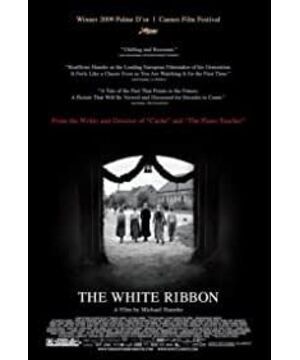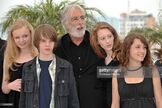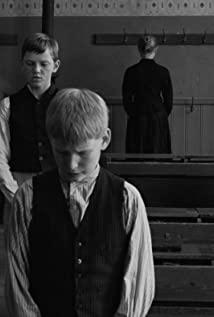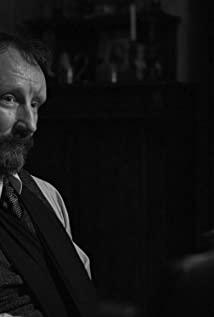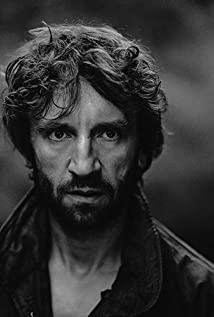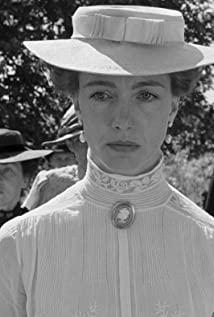The film's depressing atmosphere, slow pace, heavy themes, and a relatively closed environment for the entire story are reminiscent of Lars Von Trier's avant-garde low-budget film Dogtown. Hanake said in an interview that what he wanted to show the audience in this film was how the atmosphere of fascism and horror was sprouted, bred and spread under this "black" education. There seems to be no father's love in the movie (except when the pastor's youngest son brought him a bird), instead, there are extremely severe disciplines such as rattan and slapping. The children in these villages have accumulated a lot of bad emotions.
On the surface children and women appear to be the victims of patriarchy, but in fact fathers in the "ruling" class suffer the same thing. The doctor tripped over an unidentified iron wire while riding a horse and fell seriously injured; the farmer chose to walk the road of no return after suffering the loss of his relatives and his job; the pastor's beloved bird was brutally killed by his daughter ; The baron looks aloof, and because of this environment, he can't protect his children and can't keep his own woman. These men in a dominant position abused their hegemony, but in exchange for even more terrifying acts of revenge, they did not even know the source of this mysterious power, so they had no choice but to escape.
Who is the initiator of these series of violent incidents? Let's first look at an interesting phenomenon. The men in the movie almost all have no serious names, such as farmers, doctors, priests, and barons; but the children are famous, such as Klara, Martin, Anna, Margarete, Adolf and so on. The background of the film is around 1914. When these children grow up, they can become the backbone of the Third Reich. The children in the village have already lost their pure joy in this oppressive environment. When their minds are still immature, they have to face this negative environment. So they morphed into a small group, and strict discipline enabled them to hold tighter; the distorted worldview and excessive exclusion of dissidents slowly gave birth to abnormal violence. So some people say that this film is a precursor to Nazi Germany, and "The Wave" is the fascism of the new century.
http://imapollo.blogbus.com/logs/60067795.html
View more about The White Ribbon reviews


